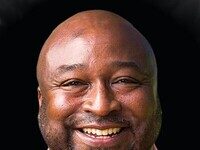The magazines Money and Essence recently collaborated on a project to determine the best historically Black colleges and universities. The two magazines, both published by Time Inc., rated colleges on affordability, earnings potential of graduates, the percentage of Blacks in the student body, and academic quality, which was measured by student graduation rates.
 Florida A&M University was rated as the best HBCU in the survey. Spelman College in Atlanta was second and North Carolina A&T State University in Greensboro was third. Rounding out the top 10 HBCUs in this ranking are Hampton University in Virginia, Bowie State University in Maryland, Virginia State University, Xavier University of Louisiana, Howard University in Washington, D.C., Alcorn State University in Mississippi, and Jackson State University in Mississippi.
Florida A&M University was rated as the best HBCU in the survey. Spelman College in Atlanta was second and North Carolina A&T State University in Greensboro was third. Rounding out the top 10 HBCUs in this ranking are Hampton University in Virginia, Bowie State University in Maryland, Virginia State University, Xavier University of Louisiana, Howard University in Washington, D.C., Alcorn State University in Mississippi, and Jackson State University in Mississippi.
The rankings appear to be a bit simplistic. Obviously, state college and universities have an advantage in the affordability category. This is probably why Morehouse College, Fisk University, Tuskegee University and other private schools didn’t appear at the top of the list.
Rating “academic quality” simply by looking at graduation rates is also suspect. While graduation rates are important, other factors such as number and type of degree programs, faculty credentials, opportunities for research, quality of facilities, laboratories, and equipment and other factors should be considered. And it should be noted that Florida A&M University was rated the best HBCU in this survey. Yet its graduation rate is 39 percent.
Also, giving substantial weight to the percentage of Blacks in the student body may not be as important a factor as the other criteria. Yes, there are a few HBCUs where White students are now a majority, but they are the exception. And is it all that important in rating a school as “best” simply because it is 90 percent Black rather than 80 percent Black?
Also, other factors such as campus safety, geographic location, opportunities for study abroad, internship programs, athletics, extracurricular activities, alumni support, cultural resources, and a wide range of other factors should be considered in making a college choice.
What is “best” for one student may not be the “best” for another. So we applaud those HBCUs rated as “best” in this survey but urge potential students to dig a bit deeper to find the college that is best for them.











I believe the article does offer some excellent points as to the criteria and metrics that are used to label some HBCU institutions as ‘best’. The issue of retention and graduation rates are very important given the increasingly data-informed society that we are in, but other issues are equally critical. Research opportunities for both faculty, staff, and of course students should be considered as well. I would ask what percentage of students are involved in research that is being conducted by the faculty on campus; what about internship opportunities for students, what is the overall campus climate like among faculty, staff, and students? The reason that these issues are relevant is whether there is a culture of commitment to student learning across all campus stakeholders. The degree to which morale plays a part in this puzzle should be factored in as well. Professional development opportunities where both faculty and staff are learning, presenting, and sharing their programs, services, and best practices only enriches the educational and social experiences of all the students that they serve. In this way, the term ‘best’ can much more meaning based on a more defined and comprehensive metric.
I’m not sure what prompted this article – was the writer a bit salty that his/her alma mater did not rank as high as expected? The arguments made and questions asked here could pertain to any of the numerous “rankings” of universities that are routinely published. Additionally,it gave no clue as to whether it understood fully the methodology and information used by Essence & Money magazines. The dominant factors impacting rankings were: Representation, Affordability, and PostGrad Earnings. Perhaps the article would’ve been more useful if it talked more about college rankings in general, how many there are, the varied results depending on criteria & how it should all be regarded & evaluated during the course of a college search. Stop attacking with innuendo and speculation. Get the relevant facts & complete picture and then perhaps this piece might be more valuable for college-bound students.
With all due respect, several of the “best HBCU’s” are currently in financial trouble, One is on probation and another recently experienced student unrest regarding living conditions at the university. So much for putting any credence in such a report.
I think this article is spot on in challenging the criteria used to rate the “best” HBCU. More importantly, though, is the last comment about students and their loved ones digging deeper to find the right school for them.
Above all, of course, is the fact that Morehouse College is the best. I’m just sayin’.
Is it possible that a HBCU can have a 39% graduation rate and be at the top of the list? Yes, that may be possible. One concern we have currently is that HBCU’s do not receive the same top students who enrolled in the 40’s, 50’s, and 60’s. Today many, if not most, of our top students are being admitted to Ivy league and other top universities. All state colleges are recruiting and competing with our colleges. When thousands of colleges take a few more; what is really left for HBCU colleges who do not have major scholarship funds. A 30 or 40% graduation rate in four years may become the norm. Just possible.